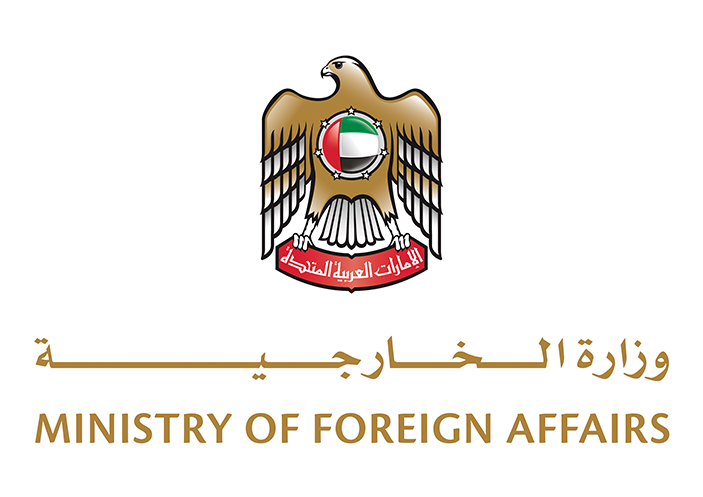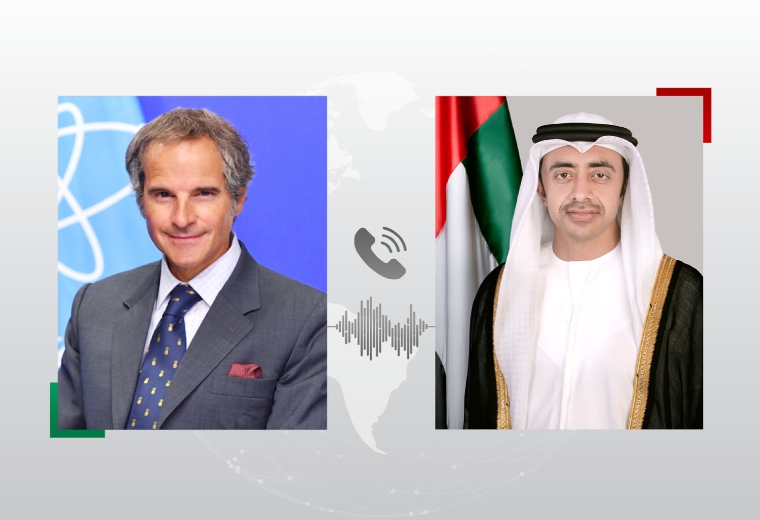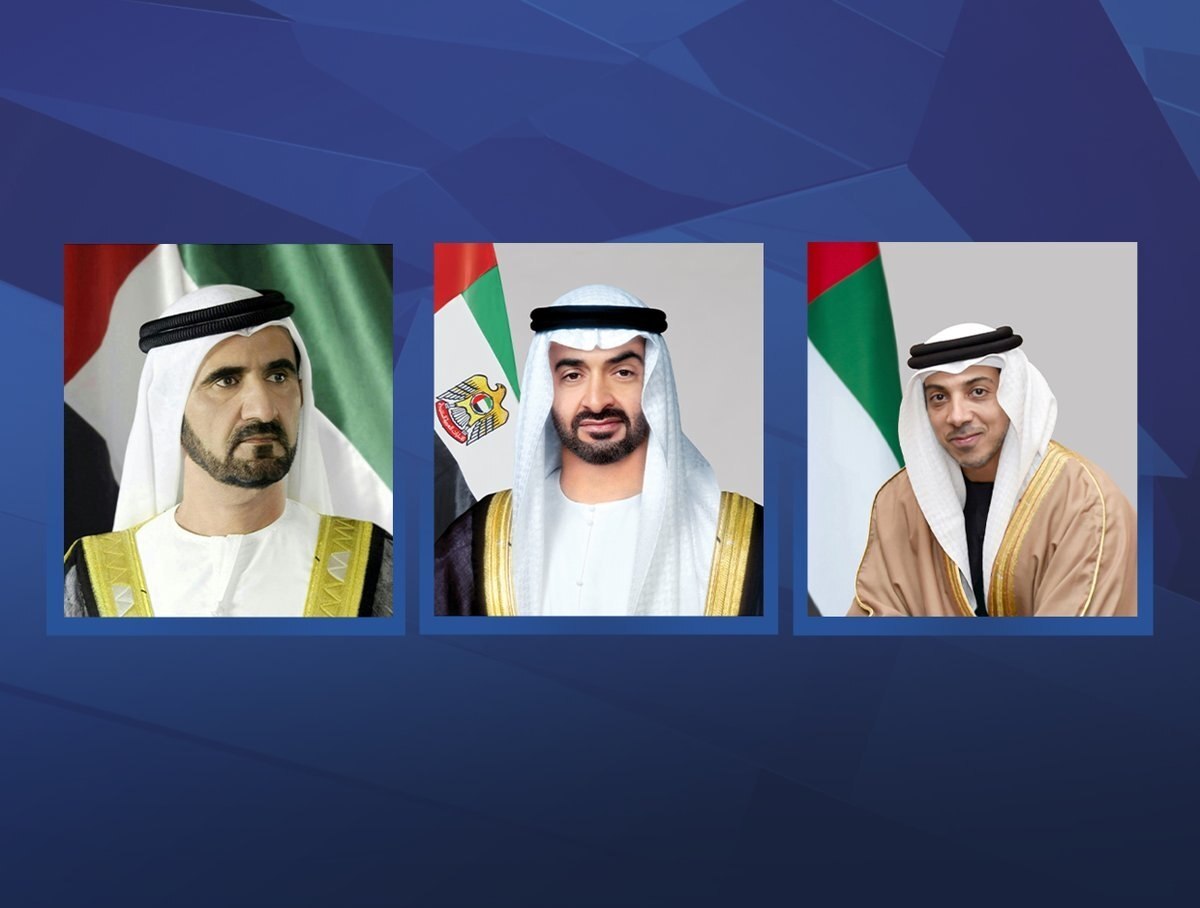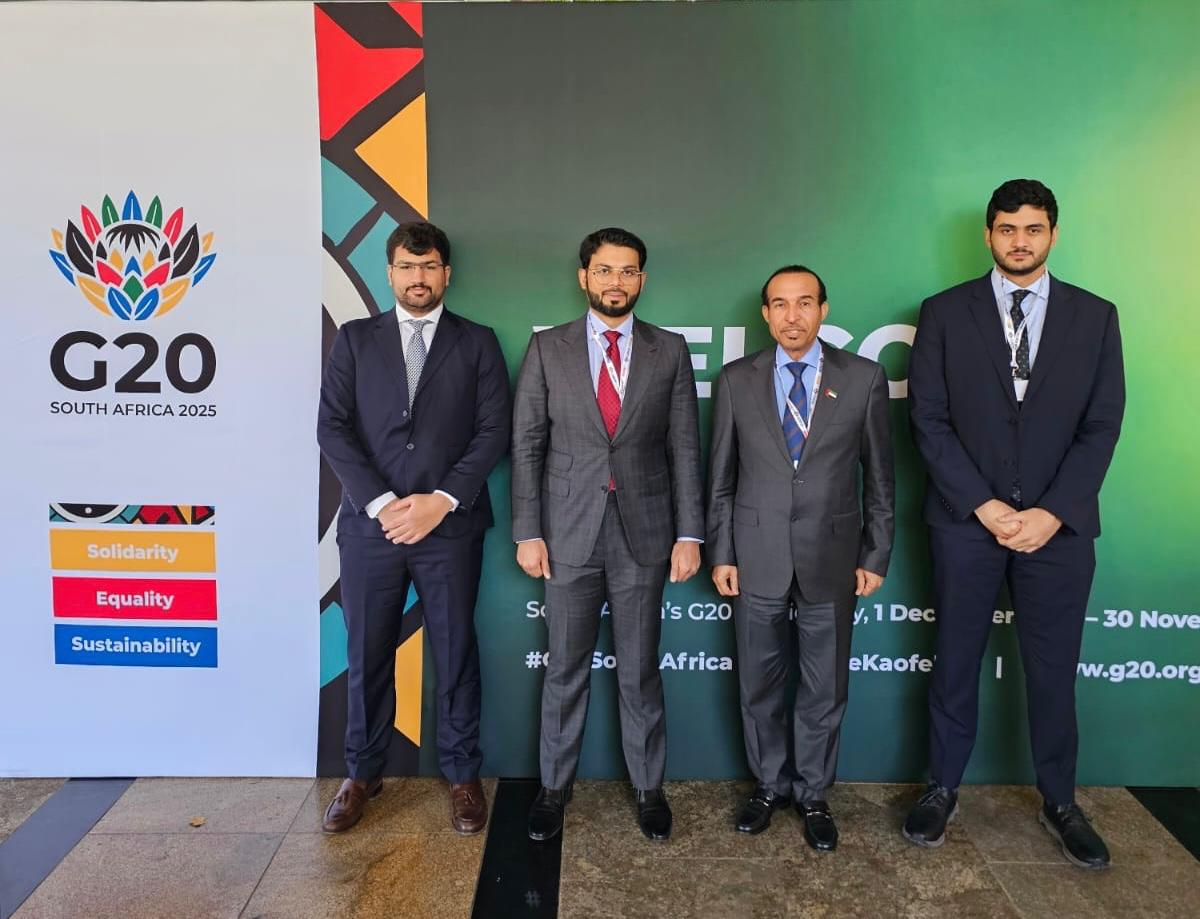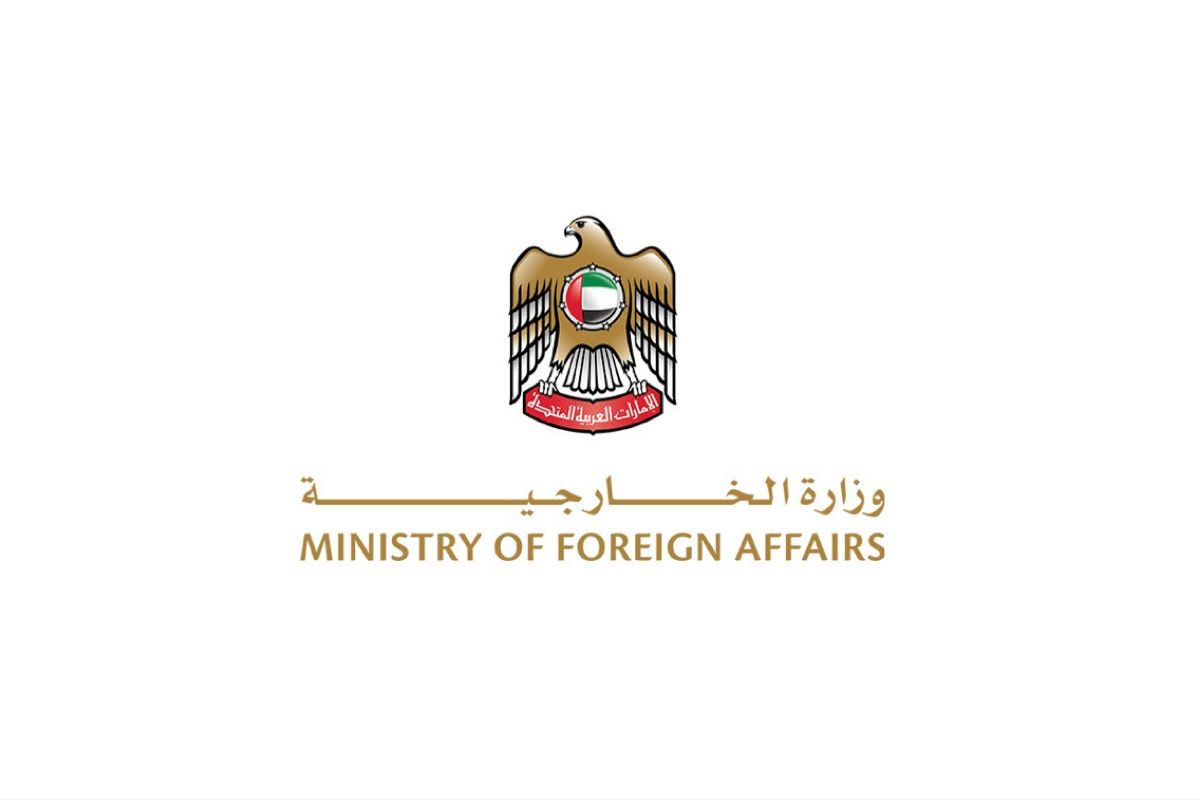The UAE and the Kingdom of Morocco stressed in a joint communique their keenness to strengthen bilateral relations to reach the strategic partnership in all levels.
The communique was issued after the talks between H.H. Sheikh Abdullah bin Zayed Al Nahyan, Moroccan Minister for Foreign Affairs and Cooperation, Salahuddin Mazwar, held in Fes city, Morocco.
The two countries reiterated their keenness to coordinate so as to bolster the relations to reach the partnership level in the implementation of the directives of two leaders of the both countries.
Following is the full text of the communique: "In the implementation of the directives of President His Highness Sheikh Khalifa bin Zayed Al Nahyan and his brother, His Majesty King Mohammed VI of the Kingdom of Morocco, to document the brotherhood and relations of cooperation and integration between the Kingdom of Morocco and the United Arab Emirates, and at the invitation of the Moroccan Minister of Foreign Affairs and Cooperation Salahuddin Mazwar, H.H. Sheikh Abdullah bin Zayed Al Nahyan, Foreign Minister, paid an official visit to the Kingdom of Morocco on Tuesday, 20th October, 2015.
The city of Fez hosted the consultations of the two ministers in the presence of members of the Moroccan and the UAE delegations who included top officials from the two foreign ministries in the framework of a cooperation protocol signed between them on June 28, 1997.
The talks, which were dominated by the spirit of brotherhood, understanding and mutual support in the evaluation and follow-up of the implementation of a set of related projects that have been signed in the presence of His Majesty King Mohammed VI and His Highness Sheikh Mohamed bin Zayed Al Nahyan, Crown Prince of Abu Dhabi and Deputy Supreme Commander of the Armed Forces, during his visit to Morocco, on March 17 - 18.
In this regard, the two ministers noted with satisfaction the progress of those concrete projects consistent with structured development programmes that target vital areas of paramount importance in the two countries including the security, religious and economic, investment, development, and humanitarian and social dimensions.
They also praised the participatory proactive approach adopted in the agreements, as active actors from various quarters were involved, including public and semi-public officials, local and private representatives, and categories of community, which constitutes one of the successful guarantees of projects and usefulness for both the investor and the beneficiary in view of the high cost-effectiveness and its focus on the human element, and provision of wealth, employment opportunities and encouragement of income-generating activities.
The two ministers stressed their keenness to move the foreign ministries of the two countries in coordination with various national actors to keep up with the series of efforts to upgrade the UAE- Moroccan relations to the level of strategic partnership in various fields in accordance with the directives of the leaders of the two countries, and for the benefit and interest of the two brotherly peoples.
The two ministers also received a first group of five new Moroccan diplomats who will benefit from mutual training courses to be held by both the Moroccan Academy for Diplomatic Studies and Emirates Academy for Diplomacy. This comes within the framework of the implementation of the Memorandum of Understanding signed by the two ministers in the presence of His Majesty King Mohammed VI and His Highness Sheikh Mohamed bin Zayed Al Nahyan during his visit to Morocco last March.
Regarding the Moroccan Sahara, the UAE side reiterated its firm position in support of the unity and territorial integrity of the Kingdom of Morocco, and its support for credible autonomy initiative put forward by Morocco as a basis for any negotiated solution to the concocted regional dispute over the Moroccan Sahara.
On Iran's occupation of the three UAE islands, the Moroccan side stressed its support to the right of the United Arab Emirates to regain its sovereignty over the three islands: The Greater Tunb, The Lesser Tunb and Abu Mousa. In this context, the Moroccan side commended the peaceful initiatives of the UAE, calling for resolution of the issue through bilateral negotiations or referral to the International Court of Justice.
The two sides referred to the level of the historical ties between the Kingdom of Morocco in the Gulf Cooperation Council for Arab States (GCC), and expressed their determination to continue the establishment of integral partnership model between the two sides, taking into account the strategic dimensions to make this partnership synonym for bilateral cooperation achieved between Morocco and each GCC state.
The ministers affirmed the two countries' desire to strengthen cooperation with friendly African countries and to follow up their development path as a strategic factor in achieving security, stability and comprehensive development. This includes investing in capacity building and income generating projects for local residents.
They voiced concern over the tense situation and escalating violence in the Palestinian territories due to the provocative practices by the Israeli occupation forces and continued violation of the sanctity of Al Aqsa Mosque and Jersalem through temporal and spatial division of the mosque, as part of a land grabbing plot.
The two sides condemned the systematic aggression which is considered a serious violation of the international legitimacy resolutions and a disrespect of international conventions. they called on the international community to shoulder legal and ethical responsibilities and to press Israel to respect and implement commitment and to provide protection to the Palestinian people and to the sacred places.
They also emphasised the importance of negotiations between the Palestinian and Israeli sides, saying the road for resuming the process starts by putting an end to the Israeli aggressions against Al Aqsa Mosque, as well as recognition of the legal status of Jerusalem as defined by the international legitimacy resolutions.
The Emirati side underlined the role played by Al-Quds (Jerusalem) Committee, chaired by His Majesty King Mohammed VI of Morocco, and its financial arm, Bayt Mal al-Qods, in protecting the city and people of Jerusalem.
On the situation in Libya, the two ministers welcomed the recent agreements made during talks between the different Libyan parties in the Moroccan city of Skhirat, under the aegis of Special Representative and Head of the United Nations Support Mission in Libya, Bernardino Leon. they also called for creation of a coalition government, capable of resolving the crisis, fighting terrorism and maintaining national unity in Libya.
On Yemen, they reiterated that the Operation: Restoring Hope, is strictly meant for defending legitimacy in Yemen and for maintaining the region's security and stability. They also stressed the importance of political solution to address the humanitarian and political crises in that brotherly country by adhering to the breakthrough made by the GCC initiative, the outcome of the comprehensive national dialogue and the unconditional compliance with the Security Council resolution 2216, with a regional and international plan for reconstruction and development in Yemen.
The ministers also emphasised the need to prevent intervention in Arab countries' internal affairs, which led to the inflammatory situation in Yemen.
The two ministers reiterated that the solution to the Syrian crisis remains linked to empowering the Syrian people to lead political transition in accordance with the Geneva 1 communique.
They also stressed the importance of maintaining cooperation relations between the Arab countries and the Islamic Republic of Iran, based on good neighbourliness and refraining from the use or threatening to use force. They urged confidence building steps to guarantee security and stability of the Middle East.
The two sides vehemently affirmed rejection and condemnation of extremism and terrorism in all forms, regardless of justifications, causes and means. they stressed the need to rally regional and international efforts to confront and to uproot this dangerous plague and not to link it with any culture or faith, in order to maintain the image of Islam as a religion of tolerance, openness and centrism, calling at the same time for strengthening channels of dialogue and interaction among cultures.
